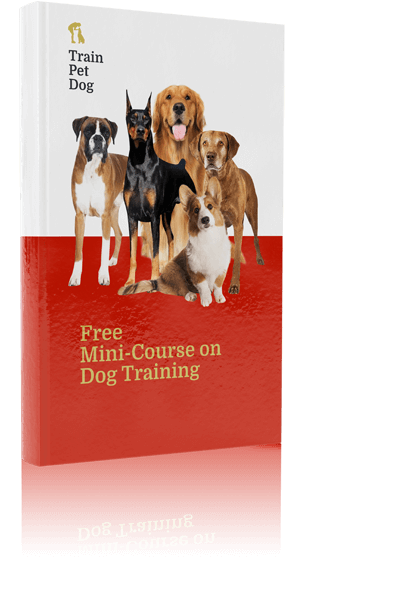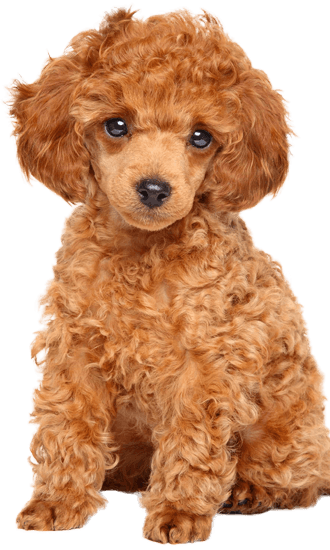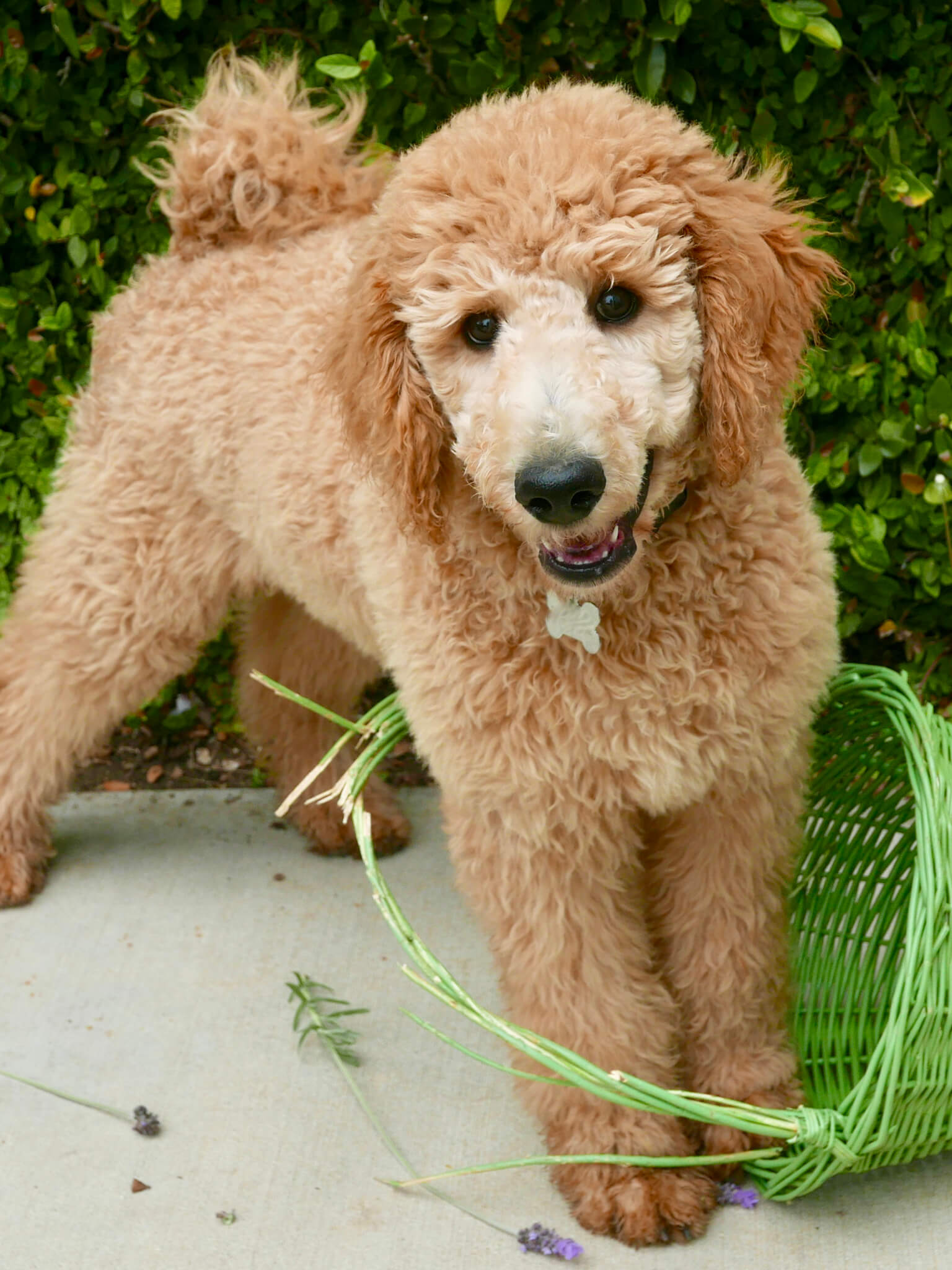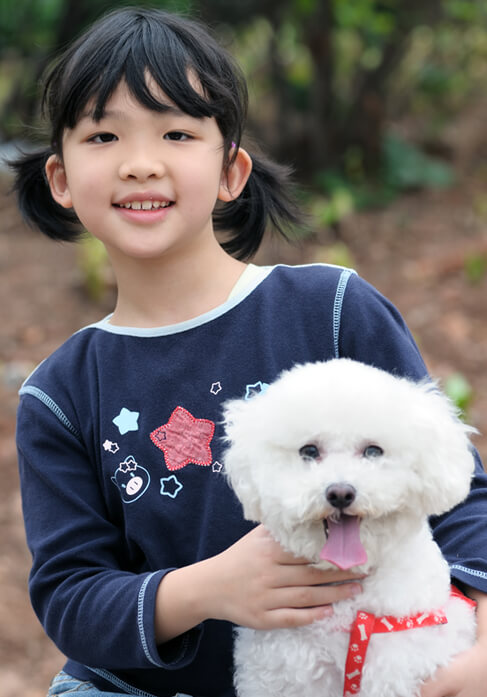Privacy Policy: Your email address is 100% safe.
We don't spam and hate it as much as you do :-) You can also unsubscribe from our mailing list at any time.

Sign Up
Toy Poodle: Breed Characteristics, Care & Exercise Needs

Country of Origin, History of Toy Poodles
Although the country of origin of the Poodle could be France, Germany, Denmark or the ancient Piedmont, it is now “officially” recognized as the dog of the French. It is probable that the Poodle came from a now nearly extinct French water dog called the Barbet. The name ‘Poodle’ comes from the German word ‘Pudel’ which means ‘one who plays in water.’
The Poodle was originally a sporting/gun dog who was used as a retriever in water. The Poodle’s heavy coat was clipped to allow him ease in swimming.
The breed’s high intelligence was shown by the French by making the Poodle a circus performer. His high degree of trainability and love of performing has made him very popular with the French who call him the ‘Caniche.’
Hunters used the Standard Poodle across Western Europe to retrieve waterfowl.
Later the Standard Poodle was bred down in size to create a new class of poodles, the Toy Poodles. In France, the poodle is also known as Caniche or the duck dog. Toy poodles became the favorites of the French royalty. However, of late, this dog has been widely used as a Show Dog.
The Toy is very good at obedience and agility as well as retrieving, watchdog duties, and performing tricks.
Toy Poodle Tools
Breed Selector Tool - is the Toy Poodle the right breed for you?
Is the Toy Poodle the right breed for you and your family?
Find out by using our Free Dog Breed Selector Tool
Check Your Toy Poodle's Learning Style
Are you aware dogs also have a learning style that can greatly affect their ability to housetrain as well as be trained correctly. Evaluate your Toy Poodle's learning style and personality using our free Learning Style tool so that you are better able to provide him with the proper Toy Poodle training methods.
Is your Toy Poodle dominating over you?
Does your Toy Poodle bark unnecessarily? Does your Toy Poodle come to you when you call? Download a FREE Report on Dog Dominance for you and your Toy Poodle and learn how to control your dog.
Do you make these mistakes with your Toy Poodle?
Are you inadvertently snow-balling bad behavior in your Toy Poodle? Evaluate your Dog Training Style from our Free Tool and learn how best to deal with your dog.
Toy Poodle Calorie Calculator
Do you know how many calories your Toy Poodle needs every day and how many cups of food you should be giving it every day? Click here to use our Toy Poodle Calorie Calculator.

A General Appearance of the Dog
The Poodle is an elegant-looking dog. He is fairly square in build, but well-proportioned. He is very dignified and often appears aloof or prissy. He should be about as tall as his back is long.
The dog has an elongated head, a round skull with a long muzzle. The dog has oval, dark eyes. Toy poodles can also be found with dark amber eyes but the ones with dark eyes are better. It has long wide, hanging ears. Behind the withers there is a slight depression however the topline is level. The dog small, oval, compact feet. It has sharp teeth, docked tail and rounded croup.
Coat Color
The coat should be an even and solid color at the skin. Various colors are black, blue, silver, brown, café-au-laits, apricot, white and cream. Any of these colors can have shadings including darker feathering of the ears and tipping of the ruff. Brown (chocolate) and café-au-lait Poodles have liver-colored noses, eye-rims and lips, dark toenails and dark amber eyes. All other colors have black noses and very dark eye-rims and lips with self-colored or dark toenails and dark amber eyes.
Coat Type
There are two possible coat types:
The Poodle coat is curly with a natural harshness that keeps it from matting but still gives a soft feel to the fingers. It is very dense over the entire body.
The other possible Poodle coat is corded, hanging in tight even cords of varying length. The cords are longer on the mane.
Height: 10 inches or less. The Toy Poodle can be no more than 10”.
Weight: 6 – 10 lbs



Free Toy Poodle Training Secrets
Free Course on Toy Poodle Training & Obedience
Stop All Bad Behavior, Excessive Barking and Biting
Toy Poodle Personality Traits

Temperament of the Dog
They -are generally well behaved
with other pets and dogs.
They are excellent playmates for older children.
They might develop behavioral problems if constantly
irritated.
Very intelligent, quick to learn and willing to please, the Toy Poodle makes a great pet for families as well as the single adult that wants a loving companion. Toy Poodles are very lively and highly responsive.
Toys are cheerful, very sensitive, and extremely smart. They love to learn tricks and understand more words in human speech than most breeds. They want to be included in all family activities. They will demand their attention, but they get it partially by their antics. They are also easy travelers.
Toy Poodles are good watchdogs and love to announce anyone who comes. They may become barkers if not trained early. They snap if teased or surprised.
The more high-strung lines produce dogs that are afraid to meet new people or go into new situations, so stay away from those. A well socialized and obedience trained Toy Poodle can be a great companion dog or family dog for anyone.
With Poodles of all sizes, shedding is nonexistent and they make great pets for those with allergies.
Better suited to an indoor or outdoor lifestyle?
Toy Poodles are great for apartment or small home living if they have some walks and opportunities for play as they are energetic and playful. They tend to get along with all types of other pets.
The Poodle needs to live in the house. Toys may like a comfy bed or sleeping with you.
Are they suited to homes with kids?
If the appropriate dog is chosen, he will be great with children, especially older children. Be sure to meet both parents and spend time with them to know their temperaments.
Training
They are fast learners and hence training them is not much of a trouble. However, they should be taught certain skills from an early stage.
Obedience training should begin when they attain a certain age. Certain commands like, ‘come’, ’go’, ‘stay’, ‘heel’ etc should be imparted. Moreover, they should be made familiar with words like ‘no’ or ‘yes’.
Poodles should be crate-trained so that they can be taught to remain in their crates until they are taken out. They are sensitive to harsh treatment, so owners should take note of that.
Poodles should be praised amply when they have successfully completed the task assigned to them. They are to be rewarded with tidbits every now and then. Poodles should be potty trained from a young age. Socializing poodles is not a major problem since they are a friendly breed.


Free Toy Poodle Training Secrets
Free Course on Toy Poodle Training & Obedience
Stop All Bad Behavior, Excessive Barking and Biting
Toy Poodle Activity Level
How Active is the Breed?
This breed is very active indoors and can get much of its exercise by playing. It is a good breed for an apartment or home with only a small yard. A couple of short, walks a day will take care of their needs
Taking them out on short walks at a particular time every day will keep them in a good mood. They love playing with water.
Pups have a fragile bone structure and they should never be over exercised.
How Much Exercise Does the Dog Need at every stage of its Life?
Puppies will play for 3- 4 hours a day in several short periods. Adults will remain very active. Without a couple of walks a day, the Poodle is likely to display behavior problems. They do enjoy a romp in a safely fenced area. Some enjoy playing in the water.
How to take care of a Toy Poodle Puppy?
How to take care of the Poodle puppies?
Toy Poodles should be handled with extra care. They should be fed small proportions of high quality food 4 times a day. They should be crate trained properly so that they do not come out of their crates until they are asked to. They should never be allowed to saunter around unsupervised because small size makes them accident-prone.
Owners should be cautious not to
over exercise them or to allow their pups to play
for long hours at a stretch. They require considerable
amount of rest during the day. De-worming and vaccinating
schedules should be strictly adhered to.
Moreover, they should never be allowed to romp around
for more than an hour at a stretch as their sugar
levels might fall. To prevent which, puppies should
be fed high quality food at regular intervals with
Nutri cals to retain apt energy levels during the
day. They love human company and often develop stress
related disorders if kept alone for too long.
Litter Size: 3-8 puppies
Life Span: 12 – 15 yrs
Grooming
Meticulous grooming of the breed should be carried out.
With Poodles of all sizes, shedding is nonexistent and they make great pets for those with allergies. Know the breeder and see the lineage of the pet you are thinking of choosing. Many problems can be eliminated here.
Expect occasional running of the eyes as they are sensitive and react to dust and pollens. Teeth need professional attention yearly to maintain good oral health. Ears must be cleared of hair on the inside routinely to avoid infections.
Expect to have your Poodle professionally groomed every six weeks for most of its life. The cost of this over a lifetime of the pet should be carefully considered before choosing this breed.
They are prone to ear infections and hence cleaning should be done on a regular basis. Their teeth need scaling and since they have long curly hair, it is essential that they are trimmed to prevent skin diseases. The breed sheds very little and is good for people who are prone to allergies.
Styles range from the simplest puppy cut to intricate sculptured patterns. Brushing can be done at home between grooming sessions, but any unique cut should be left in the hands of a trained professional.


Free Toy Poodle Training Secrets
Free Course on Toy Poodle Training & Obedience
Stop All Bad Behavior, Excessive Barking and Biting
Health and Care
Allergies and skin diseases are common.
Genetic Problems
Toys are prone to many diseases: cataracts and other eye problems such as PRA, runny eyes, allergies and skin problems, slipped stifle, epilepsy, digestive disorders, heart disease, IMHA (Immune Mediated Hemolytic Anemia), and ear infections.
Breeding the Dog and any Cautions
Speak with your breeder about an appropriate mating for your dog.
National Breed Clubs
National Breed Clubs US Poodle Club of America - www.poodleclubofamerica.org
Other Recognition:CKC, FCI, AKC, UKC, KCGB, CKC, ANKC, NKC, PCA, PCC, NZKC, CCR, APRI, ACR
Group: AKC Toy, KCGB Utility Group
AKC Popularity Ranking:7
Also Known As: Caniche, Barbone, Chien Canne
Train Your Toy Poodle To Listen To You
Get Instant Access to Your Training Now - For Free
Sign up for our Free Toy Poodle Mini Course to have a housebroken, obedient dog that happily comes to you every time you call.
You'll learn new commands to obedience-train your dog as well as how to housebreak your dog in 6 days or less.
You'll also learn how to eliminate bad habits like barking, nipping or biting, jumping, or pulling on the leash.Here's just s small fraction of what else you'll learn in the course:
How to lead and think like a pack dog - the new psychology.
3 dangerous mistakes that most Toy Poodle owners make when they are trying to potty train their dogs.
The 2 main reasons why your dog barks excessively and how to control its excessive barking.
How to obedience train your Toy Poodle to permanently end behavioral problems like Jumping, Aggression, Pulling on Leash.
A surprisingly easy way to teach your dog cool new tricks.
How to improve your dog's lifespan and keep it from getting overly heavy with a healthy and nutritious diet.
Getting Pro help fast - how to get access to our expert trainers when you need them most.
One hidden psychological trigger that all Toy Poodles have... that practically allows you to "analyze" and "control" your dog's every action.
Priority access to the free online seminars conducted by our training experts.
Whereas other dog training related web sites and books offer generic information for dogs in general, ours is the ONLY web site that offers Toy Poodle information specifically, from a renowned panel of experts - because as you probably know, Toy Poodles have their own special training requirements that other dogs don't have.
Our Dog Experts
The Toy Poodle training information you will read here was developed by a panel of renowned dog training experts whose combined wisdom represents nearly 100 years of specialist experience training dogs.
Here are a few of our experts:




